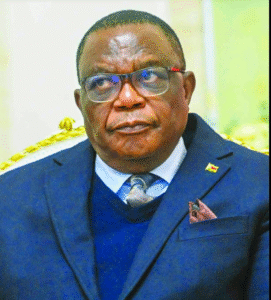ZANU PF’S URBAN BLAME GAME EXPOSES ITS OWN FAILURES
As Zimbabwe approached its August elections, the ZANU PF-led government continued its loud campaign against the opposition, particularly the MDC Alliance and CCC, accusing them of mismanaging urban areas. This familiar rhetoric, repeated over the years, is nothing more than a smokescreen to hide the true extent of urban decay—a crisis largely caused by ZANU PF’s own neglect and misrule.
Urban residents, especially those in smaller towns like Redcliff, are living proof of this decline. Water shortages have become the norm, roads are crumbling, and essential services like street lighting are nonexistent. Despite these visible signs of dysfunction, local authorities—often under the influence of central government—appear unwilling or unable to address these pressing issues.
Residents are also growing increasingly frustrated with shady land deals that seem to benefit only the well-connected. Instead of funding public services or community development, the proceeds from these sales appear to line the pockets of top officials. Their flashy vehicles and expensive gadgets stand in sharp contrast to the squalid conditions many residents endure.
Further suspicions arise around a tender for road construction in Redcliff. Despite large advance payments, no visible progress has been made. The same applies to the ongoing water crisis, particularly in Redcliff’s low-density areas, where residents are constantly given excuses rather than solutions.
While these concerns are real and justified, ZANU PF’s attempt to capitalise on urban discontent for political gain is both disingenuous and hypocritical. The Mnangagwa administration cannot continue to blame the opposition for the state of cities while ignoring its own long-standing role in Zimbabwe’s urban collapse.
The reality is that the country’s urban problems—especially the water crisis—are rooted in the ZANU PF government’s failure to invest in infrastructure and development. For decades, there has been no effort to build new water sources or to upgrade outdated colonial-era systems, even as the urban population continues to grow.
This lack of foresight is not limited to water. Zimbabwe’s electricity crisis is equally revealing. The country still relies on old power stations, some dating back to the colonial era, and no meaningful upgrades have been made since. The result is daily power cuts that cripple both households and businesses, worsening the economic crisis.
ZANU PF’s claim that it handed over functional cities to the MDC when the opposition first won urban control is misleading. What the opposition inherited were cities already weakened by years of underinvestment and neglect. Much of the infrastructure in use today is a relic of the colonial era—patched and overstretched.
The government’s response to the water crisis, particularly the borehole projects spearheaded by Finance Minister Mthuli Ncube in Cowdray Park, Bulawayo, and by President Mnangagwa in Chitungwiza and Epworth, illustrates just how far short their vision falls. Boreholes are a stopgap solution, not a sustainable strategy for urban water supply.
By promoting boreholes as a solution, the government silently admits its failure to deliver proper water systems. This raises a deeper concern: if those controlling the national budget rely on boreholes, what hope is there for ordinary citizens? It confirms that the urban crisis is systemic, and not simply the fault of local councils.
Ultimately, the root of Zimbabwe’s urban decline lies in ZANU PF’s historical failure to develop and maintain basic infrastructure—especially water and electricity. Solving these issues will require enormous investment, but that remains unlikely given the ruling party’s consistent prioritisation of personal enrichment over national development.
Zimbabweans deserve better than temporary fixes and blame games. Until there is real political will to invest in sustainable solutions, our cities will continue to crumble, and our people will continue to suffer—regardless of which party runs the local councils.



